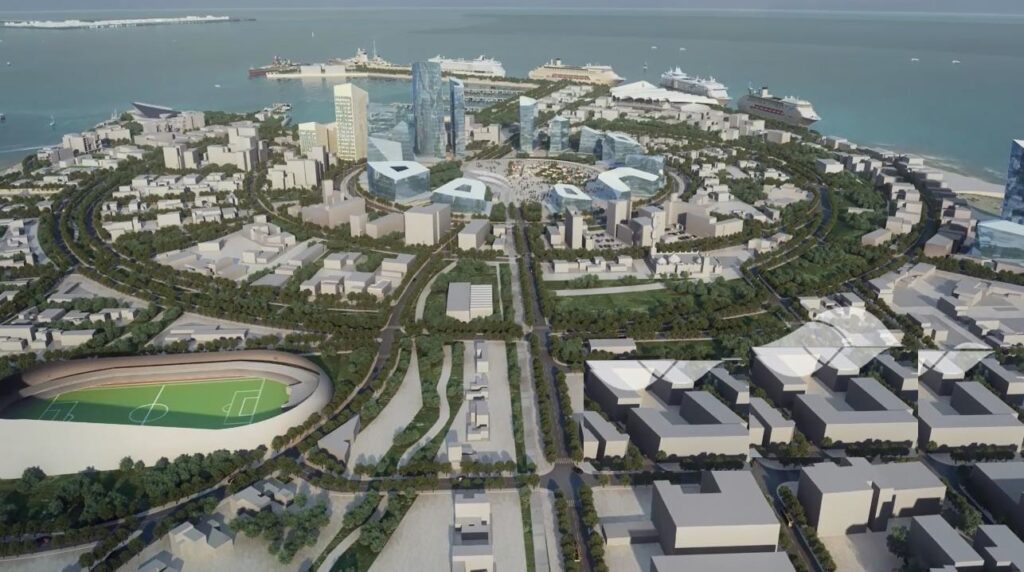
Djibouti has few natural resources and limited agricultural and industrial production opportunities. The country also faces significant unemployment, external debt, and regular budget deficits. The government continues to focus on financial, telecommunications and trade services, strengthening the country’s position as an important regional business and trade center in the Horn of Africa. As a result, the economy is highly dependent on the service sector, which accounts for about four-fifths of the country’s gross domestic product.
Agriculture, forestry, and fishing
Due to Djibouti’s harsh landscape and limited arable land, agriculture is not a viable economic sector and is mostly practiced only at the subsistence level. In the countryside, nomadic herding is a way of life. Sheep and goats are raised for milk, meat, and hides, and camels are used to transport caravans. Agriculture there is limited to a few wadis, which produce small crops of vegetables (mainly tomatoes) and dates.
Forests make up less than 1 percent of the total area of Djibouti. Much of the country’s limited forest cover has long been used for grazing livestock and firewood.
Djibouti’s coastal waters are teeming with many species of marine life, including tuna, barracuda, and sea bass. The government-sponsored pilot fisheries projects succeeded in producing small commercial fish products. However, many Kushite peoples in the region do not consume fish, and this factor has limited development in this area.
Resources and power
Djibouti has few natural resources. Salt is exploited – some are exported and some are sold through the informal sector of the economy. Efforts are underway to harness the country’s enormous geothermal potential but have not yet yielded significant results. Almost all of the country’s electricity is generated by fossil fuels.
Finance and services
The central bank of Djibouti issues the Djibouti franc, the national currency that is pegged to the US dollar at a fixed parity. There are several commercial banks, development banks, and insurance companies in the country, most of which are located in the city of Djibouti.
The country is a popular business and financial center in the region as its banking and financial laws are generally less restrictive than those of other countries. Subsequently, foreign businessmen, especially from neighboring countries, used Djibouti banks as financial havens for investment capital and as hubs for import operations to avoid more regulated banking systems in their respective countries. The quality of the country’s telecommunications services also benefits the business sector.
Djibouti Economy
The economy is based on services related to the strategic location of the country and the status of a free trade area in the Horn of Africa.
Two-thirds of Djibouti’s residents live in the capital, while the rest work primarily as nomadic shepherds. Lack of rainfall restricts crop cultivation, and most food is imported.
Djibouti provides transit port services. Imports and exports from landlocked Ethiopia account for 70% of Djibouti’s port activities. Djibouti has few natural resources and few industries.
The nation is thus heavily dependent on foreign aid to support the balance of payments and finance development projects.
With an unemployment rate of nearly 60% in urban areas, this is still a major problem.
Labor and taxation
Djibouti’s high unemployment rate, estimated at nearly three-fifths to more than four-fifths of the country’s workforce, is further exacerbated by the thousands of illegal migrants who travel to Djibouti and are willing to accept the minimum wage.
Djibouti’s tax revenue funds over half of the annual budget. Sources of income include indirect taxes, direct taxes, transit taxes, port charges, and related charges.
- VAT: 10% (standard rate). Export and international transport operations are subject to a zero rate.
- Corporate tax: 25%
- Minimum tax: 1% of turnover excluding VAT, with a minimum payment of 120,000 DJF
- Withholding Tax (WHT): Dividends: 0%; Interest rate: 15%; Royalty: 15%
- Social security contributions: 15.7% (5.5% for family benefits, 6.2% for work-related injuries, 4% for retirement age and 2% for health insurance)
- Insurance contract tax: 20%







